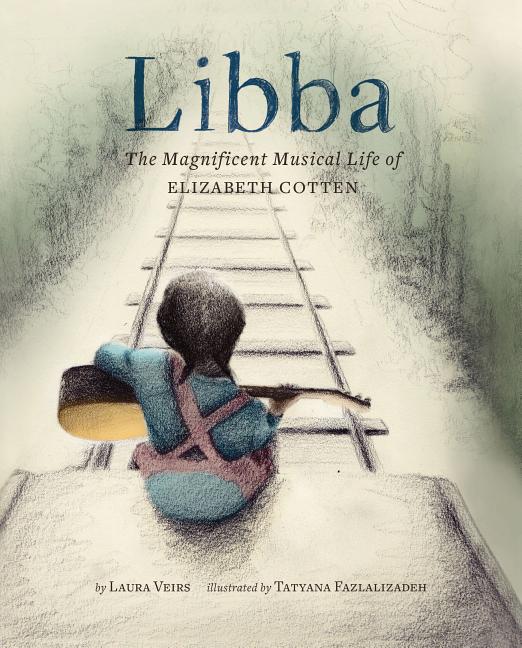Book Description
for Libba by Laura Veirs and Tatyana Fazlalizadeh
From Cooperative Children's Book Center (CCBC)
As a child in rural North Carolina in the early 20 th century, Libba Cotten “heard music everywhere.” She borrowed her brother’s guitar when he wasn’t home and played it upside-down and backwards, because she was left-handed. “Nobody else played that way, but it was the way that felt right to Libba.” Libba composed the song “Freight Train” around age 11, inspired by the sounds of trains on nearby railroad tracks. “But even trains get derailed.” Libba stopped playing to work and raise her daughter. She was a grandmother working at a department store in Washington, D.C., when she met musician Ruth Crawford Seeger, who hired Libba as a housekeeper. When she picked up a guitar again, Libba impressed the Seegers and their musician friends. The Seeger family helped promote Libba’s music, “[b]ut it was Libba’s perseverance, her love of music, and her belief in herself that gave the world her voice.” An understated, concise yet lyrical text is followed by a concluding note, which touches more on the realities of Libba’s experience as an African American woman, and sources. Libba’s story is warmly illustrated in softly-shaded graphite art with digital color. (Ages 5–9)
CCBC Choices 2019. © Cooperative Children's Book Center, Univ. of Wisconsin - Madison, 2019. Used with permission.


